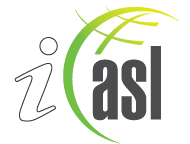

|
|
IASL Research Abstracts |
IASL Research Abstracts: 157
Findings: Older students self-assess their behavior more accurately and realistically in terms of effort, organization, and self-regulated emotions than younger students. In terms of the research process, older students assess their skills more highly than younger students in determining an information need, and interpreting information. developing a search strategy; while younger students are more confident about their evaluative skills. A significant correlation exists between social-emotional attributes and self perception of ability to do research.
Abstract: Research process and product rubrics tend to focus on cognitive skills, with little regard to students' social-emotional-motivational competence. One framework has identified key social and emotional competencies that include several that align with information literacy. Based on this model, this study investigated the correlations of social -- emotional behavior and information literacy competencies of two grades (9 and 11) of high school students. Findings indicate that teachers and teacher librarians need to attend to the social-emotional dimensions of doing research. See:
Farmer, L. (2005). Social-emotional behavior and information literacy. In S. Lee, P. Warning, D. Singh, E. Howe, L. Farmer and S. Hughes (Eds.) IASL Reports 2005: Information leadership in a culture of change. Erie, PA: International Association of School Librarianship.
Subject Categories: 10
